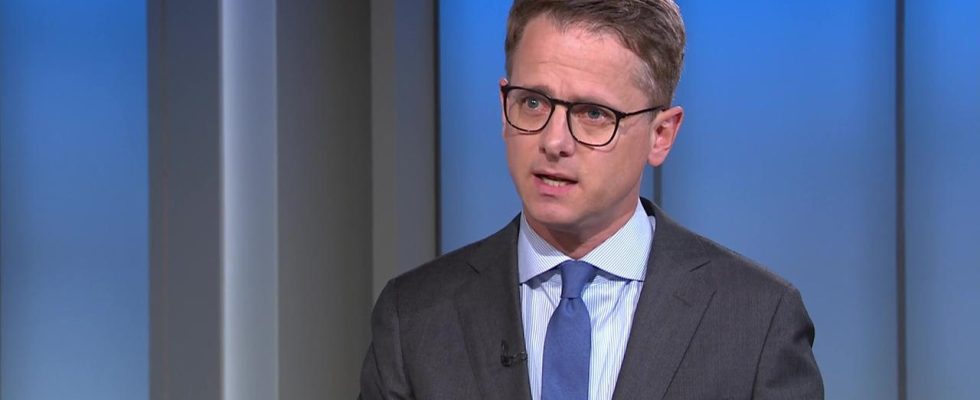CDU General Secretary Linnemann accuses Chancellor Scholz of inaction on migration policy. At the same time, he emphasizes the opposition’s willingness to work together – and defends party leader Merz’s controversial statements.
CDU General Secretary Carsten Linnemann has called on the federal government to work more closely with the Union on the issue of migration. In the “Report from Berlin” Linnemann accused Chancellor Olaf Scholz (SPD) of not having followed up on the announcement of a “Germany Pact”.
It had been days since Scholz “made a big stand in the German Bundestag” and announced that he wanted to talk to the opposition here. “We’re still waiting for the invitation today. It’s all hot air,” criticized Linnemann. “We have concrete proposals – the Chancellor just has to want it. He’s ducking it.”
Linnemann cited the discussion about whether asylum seekers in Germany should receive benefits in kind instead of cash as a concrete example of how we can work together on the issue of migration. He warned that the federal states or individual municipalities were now taking measures themselves that would lead to a “patchwork quilt”. So-called payment cards made rapid digitalization necessary. It is now the federal government’s turn: “It must present a digitalization concept for the whole of Germany and implement the payment card.” This is urgently needed now, “and we are ready to talk immediately,” said Linnemann.
Need for action in the expulsion of rejected asylum seekers
The CDU General Secretary also sees an urgent need for action when it comes to the question of how quickly people who have been rejected and are required to leave the country can be sent back to their homeland. “If someone comes to us and you see that they have been rejected, then they should not be distributed to the municipality at all, because the municipalities really have to concentrate on those who really need protection.” Those required to leave the country would have to be taken directly to centers and then sent back directly from there.
“We have to reduce social standards, we have to deport more, but we also see how difficult that is because we don’t have agreements with the countries,” said Linnemann. “The federal government has to take action.” Here too, the Union is ready to talk. “We also need new agreements with the Maghreb states, we need border controls – these are all points where we are open and really constructive – and we don’t mean this as a PR stunt, we mean it seriously.”
The Union is ready for a major consensus, “and at the end of the day, Mr. Scholz can stand in the Bundestag and send a very important signal to the world that our capacities are not only limited, but have been exhausted.” What is crucial is “that we address things clearly, but then also solve them.” What is needed now is the debate “and, at the end, solutions, and we are offering the Chancellor a chance to join forces.”
Not just sharpening, but also offering solutions
Linnemann defended his party leader Friedrich Merz, who has been criticized for his statements about health services for asylum seekers: Merz had spoken of rejected asylum seekers. “There is no country in Europe where someone who is rejected gets a better social service after 18 months than after 17 months. There is no country where rejected asylum seekers are treated in this way. And that is why it is right that “We have to lower social standards, especially for rejected asylum seekers, also overall.”
Merz is opposition leader in the German Bundestag. If an opposition leader is not allowed to escalate, who can? “But what’s crucial – and this is the difference to the protest votes and the protest parties – is that we don’t just bring things to a head, but also propose solutions.” That is the policy that is needed now, and that is also what Friedrich Merz is concerned about.
Criticism from the church
The former council chairman of the Evangelical Church in Germany, Heinrich Bedford-Strohm, sharply criticized Merz in the report from Berlin because of his statements about dental treatment for rejected asylum seekers. “The sentences were divisive sentences,” said the Bavarian regional bishop. “These words irritated me because they simply do not help the objectivity of the debate that we so urgently need now. The weak should not be pitted against the weak.”

